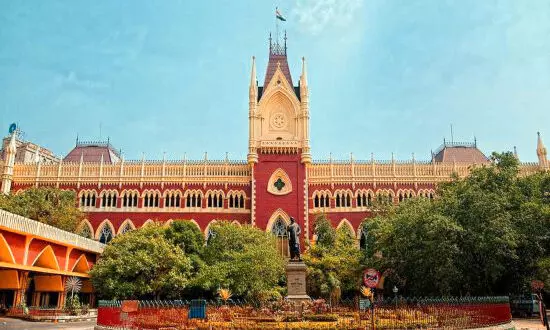
Depriving A Widow Of Stridhan, Economic Benefits By In-Laws Amounts To Domestic Violence Under PWDV Act- Calcutta HC
 |
|The Calcutta High Court held that depriving a woman/widow of her Stridhan or any other financial or economic resources she was entitled to, by her in-laws, would amount to domestic violence under the Prevention of Women from Domestic Violence Act, 2005 (PWDV Act).
The Bench of Justice Subhendu Samanta observed that Section 3 of the PWDV Act covered within its scope the 'economic abuse' and held that "The deprivation of petitioner to any economic or financial resources which the aggrieved person is entitled under any law- is also Domestic Violence. In this case it is the fact that the petitioner was deprived from her Stridhan articles since long which were under the custody of the opposite parties. This fact tantamount Domestic Violence. The judgment of trial court specifiy the reason for which he allowed the prayer of Domestic Violence of the petitioner. I find no infirmity in the said finding of the Learned Trial Court."
In this case, a criminal revision was filed by daughter-in-law (petitioner) against the order of the Appellate Court whereby the order of Magistrate Court granting compensation and other monetary benefits to a widow against her in-laws was set aside. The husband of the petitioner had expired in the year 2010 and on the second day of his death, the petitioner was asked to leave the matrimonial house by her in-laws.
Advocate Subir Banerjee appeared for the petitioner and argued that the petitioner was forced to leave her matrimonial house just a day after the death of her husband and that the in-laws had kept all her belongings including Stridhan and other articles given to her in marriage by her parents. It was also argued that such retention of stridhan by the in-laws amounted to domestic violence and was a continuing offence. It was also argued that the father of the petitioner was forced to give a written undertaking to the local panchayat that the petitioner had left the matrimonial home voluntarily.
Advocate Manjit Singh appeared for the opposite party and submitted that the petitioner had failed to prove any expenses incurred or losses suffered and thus was not entitled to any monetary relief. It was also submitted that the daughter-in-law was not entitled to have any maintenance by her father-in-law under the provisions of the PWDV Act.
The Court relied upon the decision of the Supreme Court in the case of Satish Chandra Ahuja vs. Sneha Ahuja's (2021(1) SCC 414) and held that the petitioner being the widowed daughter-in-law was entitled to have maintenance and other relief from her father-in-law according to the provisions of the PWDV Act.
The Court noted that the petitioner left the matrimonial home on the next day of death of her husband with an undertaking that she had left the matrimonial home voluntarily, which might have two explanations- "First, widow may have felt very alone in absence of her husband and took cozy shelter at her father's home; Second, they are existed no good terms with her in-laws; that is the lady was not well at her matrimonial home."
The Court further observed that the fact that the written undertaking by father of the widow was obtained to avoid future complications/proposed prosecution and this conduct by the respondents strengthen the petitioner's plea of Domestic Violence and that the Trial Court had committed grave injustice in not considering the entire case of the petitioner.
The Court further stated that the petitioner who was a widow, had no independent income and was now residing at her father's home at the mercy of her father. "The day by day expenses of livelihood of the petitioner is not a deniable factor. She is only to lay her hand to her father for to meet out the daily expenses. Thus the circumstances incurred and loss suffered by the petitioner is itself proved from the facts and circumstances of this case." said the Court.
"Ultimately, it is the irony of fate, that instead of specific legislative intent, the widow lady is roaming doors of Courts since long 10 years without receiving any monetary relief." expressed the Court
Accordingly, the criminal revision was allowed and the order of the appellate court was set aside.
Cause Title- Nandita Sarkar v. Tilak Sarkar & ors.
Click here to read/download the Judgment